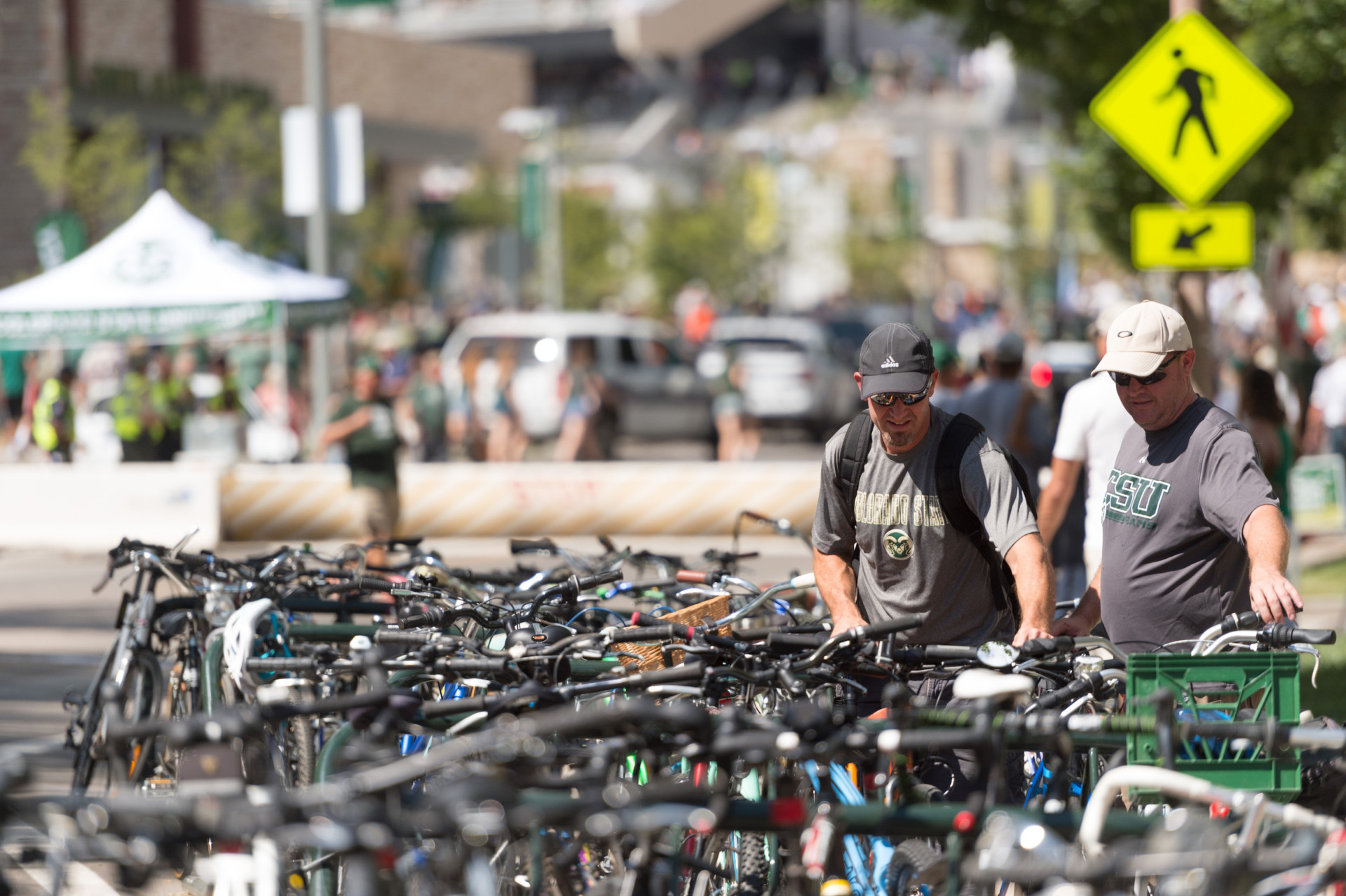
In August, thousands of new students arrived on campuses, bringing with them thousands of bikes – an attractive commodity for bike theft rings in Northern Colorado. In the first week of classes, 16 bikes were reported stolen to the CSU Police Department.
Bike theft is among the most common crimes on CSU campuses, with an average of 190 bikes reported stolen each year. Bikes are more often stolen at beginning of the school year, particularly around residence halls where bikes are parked overnight.
Bikes are an especially hot commodity this year, due to a pandemic-related boom in demand for bikes, and a resulting supply shortage.
“Most students, faculty and staff lock their bikes when they park them at a bike rack, but many do not lock them properly. Even with a lock in place, bikes still get stolen,” said Wendy Rich-Goldschmidt, interim executive director of Campus Safety and Security. “Choosing a U-lock, which is typically more difficult to remove quickly, reduces the likelihood of theft, and at a minimum, make the bike less attractive to opportunistic thieves.”
U-Locks in particular keep bikes safer than cables alone. Cable locks are easier to quickly clip with bolt cutters than heavier U-Locks. Of recent bike thefts reported on Main Campus, 63% of the stolen bikes had cable locks, 25% had U-locks and 12% of the bikes were unlocked.
Tips for preventing bike theft
Main Campus has 18,000 bike rack spaces; when possible secure your bike to a bike rack
If a rack isn’t available, be sure your bike is locked where it can’t be lifted up and over a poll or tree
Secure your bike in a well-lit location
Lock your bike to something that is stationary and stronger than your lock
Lock your bike properly. Lock the frame to the rack, not a wheel.
Avoid leaving your bike parked on a campus over night
Use a combination of U-lock and cable: U-lock for the frame, and longer cable lock to secure the wheels and other easily removable parts to the frame (see photo #1)
Register your bike with CSUPD at police.colostate.edu/register-your-bike
U-locks require power tools to cut, making it difficult to cut without drawing attention and in a short period of time. However, with the right battery-powered tool, a thief can cut through a U-lock in less than a minute.
“Bikes locked with U-locks are stolen from campuses, but generally those are high-dollar bikes that make it worth the risk because of a higher profit when the stolen bike is sold,” said Rich-Goldschmidt.
Free U-locks for CSU students
To help reduce bike theft, a CSU project team partnership gave away free U-locks to students living in certain residence halls with historically higher bike theft rates. Bike theft is tracked and bike lock use is measured following lock distribution and education.
The project team is a unique partnership among CSU Parking and Transportation Services, CSU Police, Central Receiving, and Housing & Dining Services as well as support from university groups including student Eco Leaders, the Campus Bicycle Advisory Committee, and The Spoke. Bike locks were donated by Rocky Mounts – a Colorado-based company specializing in bike racks and locks.
“We partnered with CSUPD to identify areas on Main Campus with the highest rates of bike theft, so that we can target them for free U-lock distribution and track the impact of the project,” says Erika Benti, CSU Parking and Transportation Services. “We hope this study will tell us whether the availability of u-locks, paired with education on how to use them correctly, is effective in reducing bike theft at CSU. If so, the project team will explore ways to get affordable u-locks into the hands of incoming students. Reducing bike theft benefits students and employees who rely on their bikes to get around.”

This high rate of theft is a drain on valuable CSUPD resources, and creates hardship for students and employees who rely on their bike for transportation. As a Platinum-status Bike Friendly University (the highest rating available), CSU strives to be a place where faculty, staff, students and visitors feel safe riding and securing their bikes.
According to an annual university transportation survey, 17% of CSU students report biking as their primary mode of transportation (12% including faculty, staff and students).